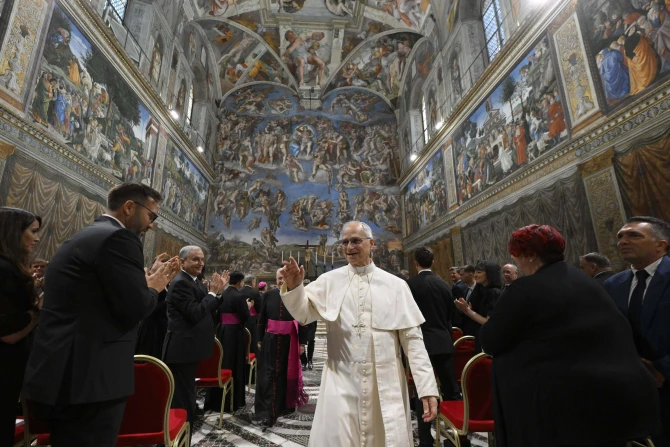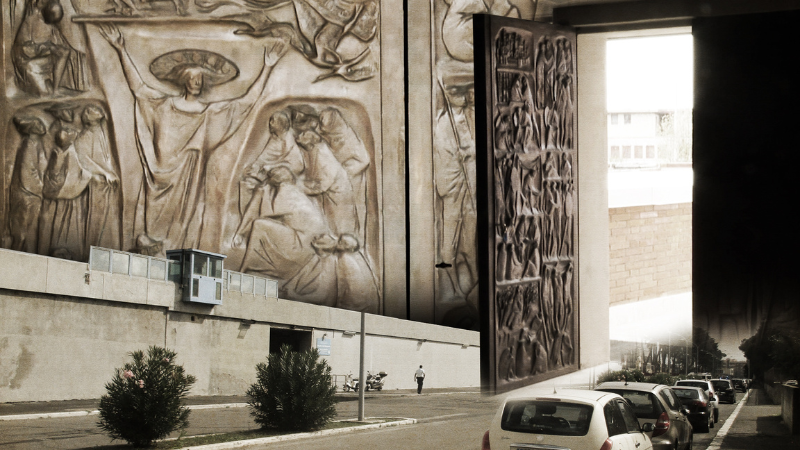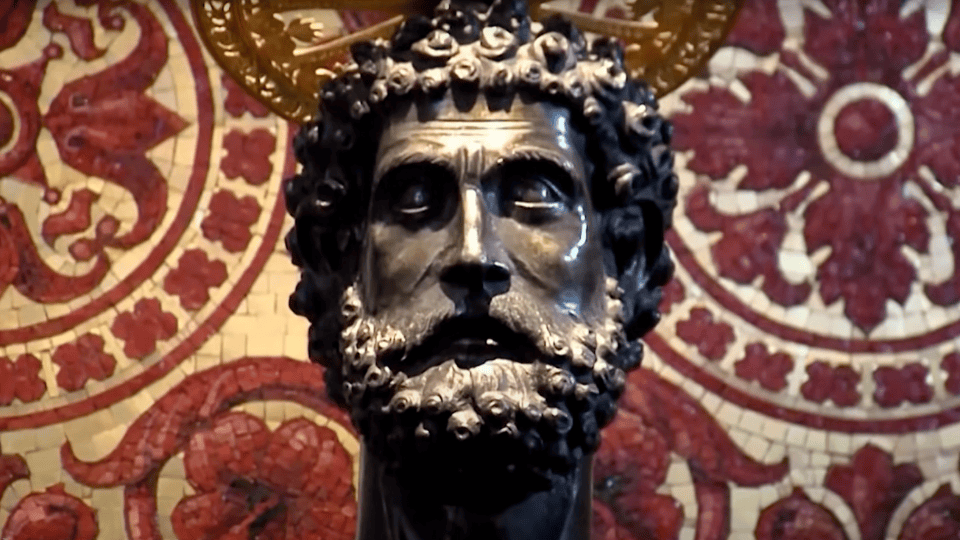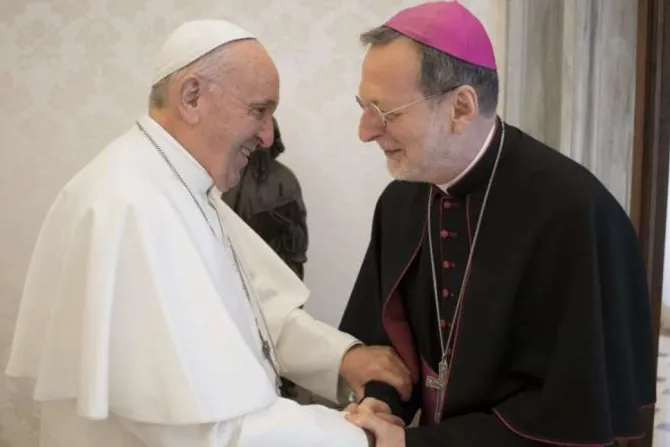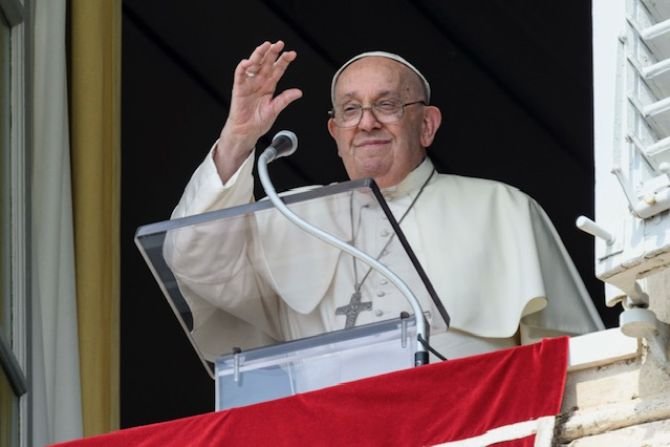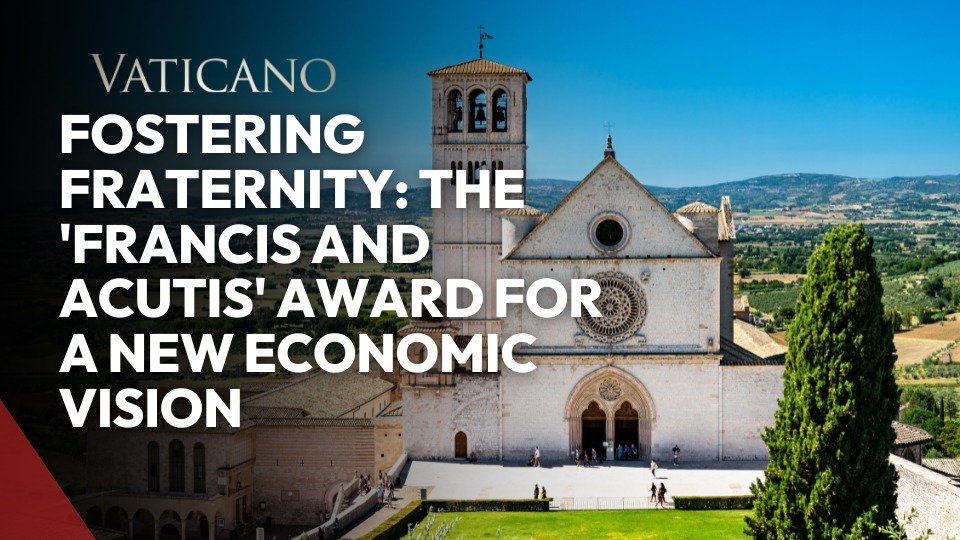Pope Leo XIV recalled the life and legacy of Cardinal in Pectore Iuliu Hossu, a Romanian Greek Catholic bishop, “pastor and martyr of the faith during the communist persecution in Romania,” who was commemorated Monday in the Vatican and who saved thousands of Jews from death during World War II.
FIND THE POPE’S BIOGRAPHY HERE
“We have gathered today in the Sistine Chapel to commemorate, in the jubilee year dedicated to hope, an apostle of hope: Blessed Cardinal Iuliu Hossu, Greek Catholic bishop of Cluj-Gherla,” said the Holy Father at the beginning of his address at the commemoration ceremony for the cardinal, who died 55 years ago on May 28, 1970.
“Today,” Pope Leo continued, “he enters this chapel after St. Paul VI, on April 28, 1969, named him cardinal in pectore (in secret) while he was in prison for his fidelity to the Church of Rome.”
Hossu’s appointment as a cardinal was not known until 1973, three years after the death of the cardinal in pectore, according to Vatican News.
According to the Catholic Encyclopedia, the pope can create a cardinal in pectore, a designation known only to him and the cardinal. He does not acquire the rights of a cardinal until it is publicly announced. If the pope dies before this is known, he does not become a member of the College of Cardinals.

‘Righteous among the nations’
In his remarks, Leo XIV emphasized that this year the cardinal is especially remembered, as he is “a symbol of fraternity that transcends any ethnic or religious boundaries. His recognition process as ‘Righteous Among the Nations,’ which began in 2022, is based on his courageous commitment to supporting and saving the Jews of Northern Transylvania when, between 1940 and 1944, the Nazis implemented the tragic plan to deport them to the extermination camps.”
The title of “Righteous Among the Nations” is awarded by the Yad Vashem Holocaust Remembrance Center in Jerusalem to non-Jews who risked their lives to save Jews from extermination at the hands of the Nazis.
Action in the face of the ‘darkness of suffering’
Leo XIV then recalled a passage from a 1944 pastoral letter written by the blessed martyr in which he stated: “Our appeal is addressed to all of you, venerable brothers and beloved children, to help the Jews not only with your thoughts but also with your sacrifice, aware that today we can accomplish no nobler work than this Christian and Romanian aid, born of ardent human charity. The first concern of the present moment must be this work of relief.”
“Cardinal Hossu, between 1940 and 1944, contributed to saving thousands of Jews from death in northern Transylvania. The hope of the great shepherd was that of the faithful man, who knows that the gates of evil will not prevail against the work of God,” the Holy Father continued.
After emphasizing that he was a man who lived “prayer and dedication to others,” Pope Leo recalled that Pope Francis beatified Hossu on June 2, 2019, in Blaj, Romania — along with six other martyred bishops — and highlighted a phrase from his homily that belonged to the bishop and cardinal: “God has sent us into this darkness of suffering to forgive and pray for the conversion of all.”
For Pope Leo XIV, the phrase “remains today a prophetic invitation to overcome hatred through forgiveness and to live the faith with dignity and courage.”
‘A courageous and generous man, even to the point of supreme sacrifice’
The pope also emphasized that “Cardinal Hossu’s message is more timely than ever. What he did for the Jews of Romania, the actions he undertook to protect others, despite all the risks and dangers, show him as a model of a free, courageous, and generous man, even to the point of supreme sacrifice.”
“Therefore, his motto, ‘Our faith is our life,’ should become the motto of each one of us.”
After encouraging Hossu’s example to be “a light for the world today,” Pope Leo XIV finally exclaimed: “Let us say ‘no’ to violence, to any violence, even more so if it is perpetrated against defenseless and vulnerable people, such as children and families!”
Who was Iuliu Hossu?
Iuliu Hossu was a Greek Catholic bishop and cardinal in pectore. He was born on Jan. 30, 1885, in Milas.
In 1904, he began his theological studies at the College of Propaganda Fide in Rome. In 1906 and 1908, he earned doctorates in philosophy and theology, respectively. On March 27, 1910, he was ordained a priest.
According to Vatican News, on March 3, 1917, he was appointed bishop of the Greek Catholic Eparchy of Gerla in Transylvania. In 1930, the eparchy changed its name to Cluj-Gherla, moving its center to the city of Cluj Napoca. There was a period of occupation there between 1940 and 1944.
On Oct. 28, 1948, Hossu was arrested by the communist government and taken to Dragoslavele. He was later transferred to the Orthodox Monastery of Caldarusani and in 1950 to the Sighetul Marmatiei Penitentiary. In 1955 he arrived at Curtea de Arges, in 1956 at the monastery of Ciorogarla, and finally back to Caldarusani.
In August 1961, he wrote this in prison: “I have not been able to take away your love, Lord; it is enough for me: I ask your forgiveness for all my sins and I thank you with all my being for all that you have given me, your unworthy servant.”
Hossu was deprived of all freedom until his death on May 28, 1970, at the Colentina Hospital in Bucharest, where his last words were: “My battle is over; yours continues.”
SIGN UP FOR OUR NEWSLETTER HERE
This article was originally published by CNA.

